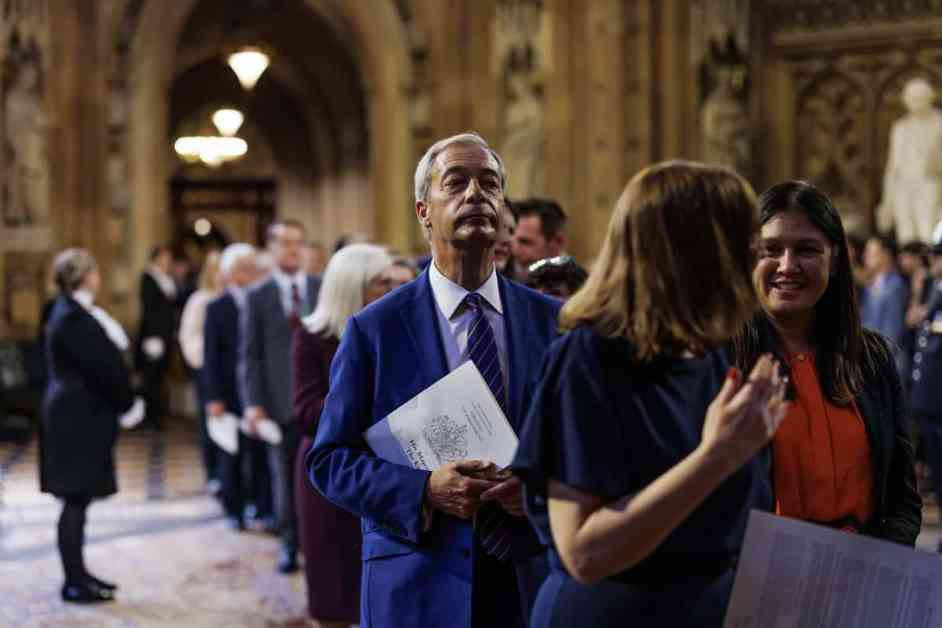Lord Patten, a prominent figure in the political scene, recently shared his thoughts on the future of the Conservative Party during an interview on The News Agents podcast. In his remarks, he did not hold back in criticizing Nigel Farage, referring to him as a “saloon bar bore”. This comes as the Conservative Party is in the process of selecting a new leader following the departure of Rishi Sunak after a disappointing general election outcome.
Among the six senior Tories vying for the leadership position, Shadow housing secretary Kemi Badenoch has emerged as an early favorite according to bookmakers. However, former immigration minister Robert Jenrick is also making a strong bid, particularly appealing to the Tory right. On the other hand, shadow security minister Tom Tugendhat and shadow home secretary James Cleverly are positioning themselves to attract centrist Conservative voters. The field is completed by former home secretary Dame Priti Patel and shadow work and pensions secretary Mel Stride, who each garnered the backing of 10 MPs to enter the race.
Lord Patten expressed his lack of enthusiasm for the candidates in the running, particularly highlighting his concerns about Tugenhadt’s flirtation with leaving the European Court of Human Rights (ECHR). He cautioned against a shift further to the right and the potential inclusion of figures like Nigel Farage, whom he believes has caused significant harm to the country. Patten pointed out the impact of the Brexit campaign led by Farage, attributing a 5% reduction in GDP to the decision to leave the European Union. He questioned how Farage’s views could align with traditional Conservative values, branding him as a tiresome and unoriginal presence in political discourse.
In addition to his criticism of Farage, Lord Patten raised broader concerns about the direction of the Conservative Party. He noted that the economic and foreign policy stances of the party resemble those of other polarizing figures, such as Liz Truss and Jeremy Corbyn. Patten’s remarks shed light on the challenges facing the party as it navigates a post-Brexit landscape and seeks to redefine its identity in a rapidly changing political environment.
As the Conservative Party prepares to select its new leader, the comments from Lord Patten serve as a reminder of the internal divisions and ideological debates within the party. The outcome of this leadership contest will not only shape the future of the Conservative Party but also have far-reaching implications for the direction of British politics as a whole. It remains to be seen how the party will reconcile its competing factions and chart a course that resonates with voters across the political spectrum.












